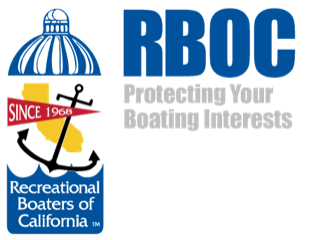We are continuing our call-to-action to preserve boating and fishing opportunities until Wednesday, August 12. Today, the Senate Natural Resources and Water Committee postponed consideration of AB 3030 [Kalra] until its August 12 hearing. So there is still time for boaters to take action!
RBOC and our national advocacy partner BoatU.S. urge boaters to contact their California State Senators and request they vote against AB 3030 [Kalra] unless the legislation is amended to include provisions that acknowledge recreational boating and fishing as being consistent with the measure’s objective of conserving biodiversity.
RBOC and BoatU.S. support the objective of AB 3030 to set a target for California to conserve 30 percent of land areas and waters within the state by 2030 to protect habitat and improve access to nature for all. But the content of the legislation is overly broad and does not define “protection.”
It is foreseeable that AB 3030 could be allow state and local governments to unnecessarily restrict or prohibit recreational boating. The bill lacks key definitions, contains broad and ambiguous statements, and fails to acknowledge existing protections and ongoing conservation initiatives as existing protections that would count toward its “30 percent” goal.
While AB 3030 mentions “access to nature” there is no specific mention of boating.
It is critical that California senators amend AB 3030 to include an explicit recognition that recreational boating is consistent with environmental conservation and that boating access will not be curtailed by the measure. As currently written, this is far from clear.
It is important that boaters take action today and urge their California State Senators to ensure that AB 3030 is amended to recognize recreational boating as consistent with the objectives of the legislation. The votes will come soon given the shortened legislative session caused by months of recess due to the pandemic.
You can easily contact your State Senator by visiting the BoatU.S. Government Affairs webpage. It provides a pre-filled form. Note that you can change the message to add your own perspectives on this legislation.
To take action: Click Here
